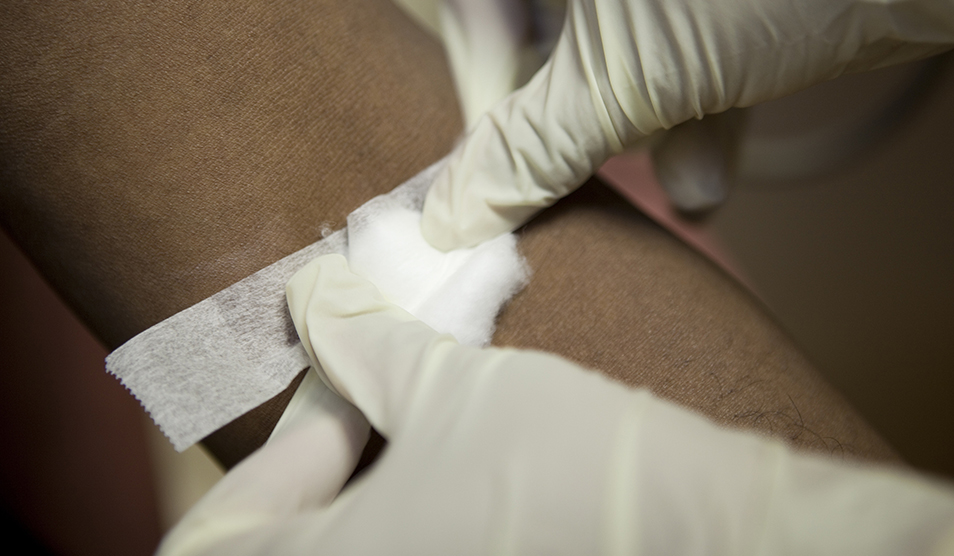Children's audiology
Contact
- General Enquiries
- 020 3312 2448
Visitor Information
Translation help:
To translate this page into your preferred language, click the Google Translate icon in the top-right menu and select your desired language.
Hearing is an important aspect of day to day life. It helps us to connect with the world around us better. Our aim in audiology is to empower individuals and help them to overcome the barriers their hearing can create for them.
Our children’s audiology service is part of a multispecialty paediatric department. Many of the specialties are nationally and internationally renowned. We provide a comprehensive, family-friendly and integrated screening, diagnostic and habilitative audiology service for babies and children of all ages with hearing difficulties.
We aim to provide the best quality care for our patients and follow local and national protocols, as well as conducting audits to ensure our service is always improving and working at its most optimum.
We have particular expertise in assessing children who are difficult to test, and provide a reactive service for babies and children who have lost their hearing as a result of meningitis, birth complications and other conditions such as glue ear. The service receives over 100 new referrals a month.
Our services are led by audiovestibular physicians and audiologists. We provide extensive assessments for children with:
- general hearing concerns
- speech and language difficulties
- glue ear concerns
- tinnitus
- family related hearing loss
- ototoxicity monitoring
We conduct full investigations of hearing loss using a number of tests such as:
- full behavioural hearing assessments
- otoacoustic emission testing
- auditory brainstem response (ABR) assessment under natural sleep, sedation or general anaesthetic
- speech testing
Treatments we offer
Habilitation is an important part of audiology and we aim to provide a range of aids individual to each child to meet their needs. Our aids include:
- a range of behind-the-ear hearing aid fittings
- bone anchored hearing aids
- bone conduction hearing aids
- cross hearing aids
Clinics
Our children's audiology service holds clinics at St Mary's and Charing Cross hospitals as well as the medical centre on Woodfield road.
Charing Cross Hospital paediatric hearing clinic
Address
Children’s hearing clinic
Paediatric audiology department
Second floor
North wing
Charing Cross Hospital
Fulham Palace Road
London W6 8RF
Hours
09.00 to 17.00, Monday through Friday
Contact information
Phone: 020 3311 1020
Email: childrens.hearing@nhs.net
St Mary’s Hospital paediatric hearing clinic
Address
Paediatric audiology department
Paediatric outpatients department
Sixth floor
Queen Elizabeth Queen Mother (QEQM) Building
St Mary’s Hospital
Praed Street
London W2 1NY
Hours
09.00 to 17.00, Monday through Friday
Contact information
Phone: 020 3312 2448
Email: smpaediatric.audiology@nhs.net
Woodfield Road Medical Centre clinic
Address
Paediatric audiology department
First floor
Woodfield Road Surgery
7E Woodfield Road
London W9 3XZ
Hours
08.45 to 17.15, Monday through Friday
Parking
There is free parking in a small parking lot with limited availability. The parking operates on a first come first serve basis and can be found directly outside the medical centre.
Contact information
Phone: 020 3312 2448
Patient information leaflets
- Ear wax treatment
- Getting your child to wear their hearing aids
- Glue ear
- Hearing aid fitting appointment
- Hearing assessment under sedation
- Hearing screening and congenital cytomegalovirus CMV
- Listening exercises
- Social story – complex clinic
- Transitioning to adult audiology services
- Welcome to the children's audiology department
- Welcome to the children’s audiology department
- Your baby's hearing assessment
- Your child's hearing assessment appointment
GP referrals and conditions
Please use NHS e-Referrals to refer a patient to our children's audiology service.
We welcome referrals for patients with the following:
- Concerns about hearing
- Concerns about speech and language development
- Uncertainty about hearing in children with developmental delay
- Uncertainty about hearing in children with behavioural problems
- Children at risk of hearing problems due to a medical condition or treatment
Unfortunately, we do not yet provide:
- Auditory processing testing
- Clinical balance assessments
- Cochlear implant assessments
Referral forms
Referrals to Charing Cross Hospital/Parkview Centre
Referrals to St Mary's Hospital/Woodfield Road Medical Centre
Further online resources
If your children has recently received a diagnosis, your audiologist, audiovestibular physician or ear, nose and throat consultant will provide information tailored to your child, but if you would like to read further there are a number of resources you can access.
- NATIONAL DEAF CHILDREN’S SOCIETY
- National Deaf Children's Society – my baby has a hearing loss
- NHS NEWBORN HEARING SCREENING PROGRAMME
- BRITISH ASSOCIATION OF AUDIOVESTIBULAR PHYSICIANS
- NHS CHOICES – GLUE EAR
- NHS CHOICES – HEARING LOSS
- MICROTIA MINGLE UK
There are also a number of apps that you can download to your device that provide information and resources for you and your child.
- My Ear Anatomy – Play Store and App Store
- Oxford Medical Dictionary – Play Store and App Store (please note that you have to pay for this app)
- First Sounds – Play Store
- Sound Essentials – Play Store
- Resound Tinnitus Relief – Play Store and App Store
- Sign BSL – Play Store and App Store
Latest news See all news
-
 Read the full story
Read the full storySt Mary’s trialling 15-minute blood test for life-threatening conditions in children
St Mary’s Hospital is one of three hospitals involved in an NHS trial to find out if an innovative 15-minute blood test can diagnose children with potentially life-threatening infections.
-
 Read the full story
Read the full storyFinalists at HSJ Digital Awards
Imperial College Healthcare has been shortlisted for five HSJ Digital Awards.
-
 Read the full story
Read the full storyWorld-first gene-editing treatment for blood disorders including sickle cell disease approved for use in the NHS
NICE has today approved a gene-editing treatment for use with NHS patients over the age of 12 with a severe form of sickle cell disease.
